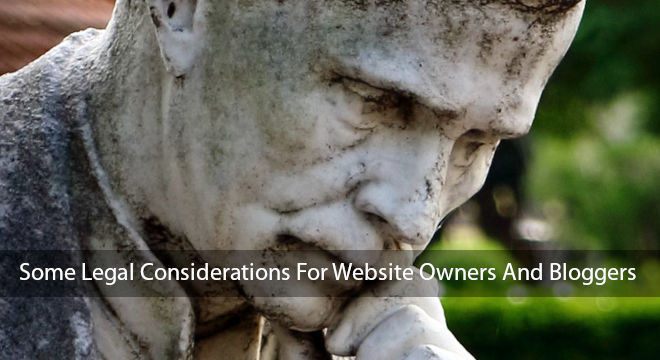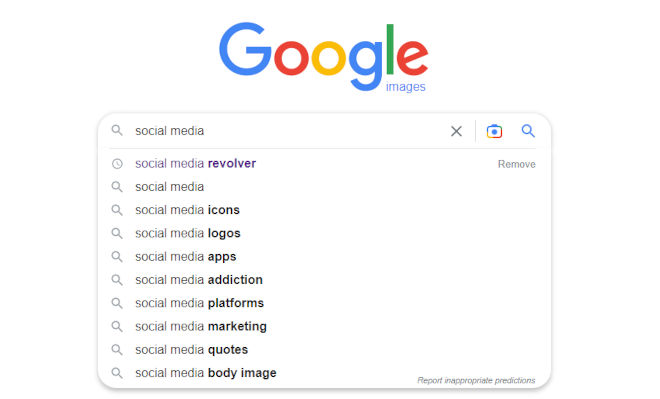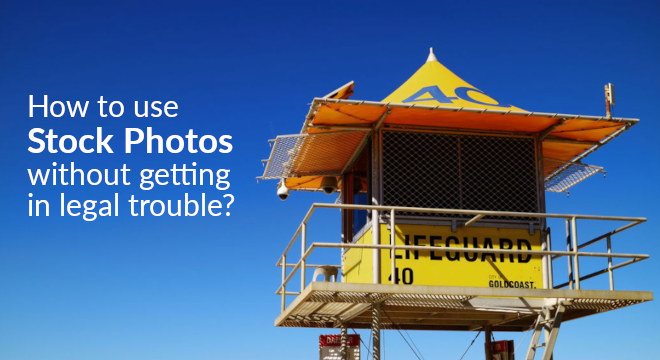
If you run a website or a blog and you’re serious about making it a success, then you need to treat it like a real business
It’s no good just making the site however you like, without thinking about any of the legal or business aspects and hoping it will be a success. Either it will plummet, or you’ll end up getting into trouble.
Treating your website like a real business means looking into the law surrounding it and your business model – and that means using a lawyer, or at least doing your own due diligence.
But what could you possibly have to consider? It’s just a website after all.
Right?
Wrong! Read on to find out why your website can get you into trouble and why you need to have legal protection.
Copyright & Image Use
The first, and most important thing to consider when you create your website is copyright, and here you have two important jobs:
- avoiding infringing on other creators and getting into trouble as a result, and
- protecting your own creations from being stolen and used against your will.
Many site owners or bloggers won’t realise that they can’t just use images they find on Google Images to populate their website or blog. Of course doing so is essentially stealing and translates into making a profit on the back of someone else’s hard work.

[Note from Editor: By default the copyright to an image belongs to the person who originally created the image, whether it’s a photograph, line drawing or a painting.]
If you aren’t able to create your own professional looking images then your options are to pay a designer, to use a free stock images site, or to contact the copyright owner and ask for permission. If you do decide to use some elements that you aren’t sure about, then you need to include a notice to enable the owners to contact you and ask them to be removed and this is something a lawyer can help you with.
For protecting your own content and images the first and most important thing is to be aware of the law and your rights. Once you know this, you will know when you are entitled to step in, and here you can then use the help of a lawyer to conduct a proper removal notice.
Taxes
Another consideration you need to take into account is your taxes. If you are earning over a certain amount from your website/blog, then you need to declare that income so that you can pay tax on it. If you don’t, you will find yourself in a lot of trouble. This can be scary and intimidating for those who aren’t used to working for themselves, but with the help of an accountant and a little experience it’s actually not all that bad.
It’s also worth looking into what you can and can’t claim back on your tax to make sure that you save money without getting into trouble again.
Legal Protection
If you have a website that gives any kind of “information” then you can potentially set yourself up for attack. If someone follows your advice and it leads to injury or even death you might end up being taken to court.
Likewise, if you write something libellous or defamatory you can find yourself at the receiving end of a court order. In this case any of the laws that apply to print magazines can apply to your website as well.
Make sure you take steps to avoid getting into trouble this way by researching your facts thoroughly and including all important disclaimers. In any case, be prepared to defend yourself if necessary.
[Recommeded reading: How To Use Stock Photos Without Getting In Legal Trouble]
[Image credits – Main photo: Flickr/Kris Olin; other images, videos, infographics or screen prints are from their respective websites and/or social platforms]
Joseph Kennedy is a very knowledgeable and inquisitive person. He likes writing blogs in his spare time.

Comments are closed.